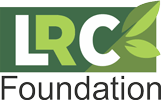LRC Foundation
LRC History
LRC Foundation aims to become an African Hub for the preparation, exchange and dissemination of knowledge, skills and information derived from best agricultural practices and research results.
Small and medium scale farmers along agricultural value chains are expected to progressively benefit from improved access to knowledge, information and services, gain confidence in and enhance collaboration with public and private actors along value chains.
By linking and providing information to actors in the agricultural sector, removing bottlenecks along value chains, improving access to markets and facilitating access to new climate smart agricultural technologies the LRC foundation will contribute to the optimization of value chains.
This will increase productivity and income from agribusiness activities and will change the livelihoods of rural communities in general and farmers in particular. The core business of the LRC Foundation over the next five years is on providing knowledge, skills and information and in creating linkages in three priority areas.
In 2016, LRC formed a new for-profit subsidiary company to allow an expansion of its programs that target commercial activities.
The new company named Latia Agribusiness Solution (LAS) started in April 2017 and took over the commercial activities previously run by Latia. Latia retained its not-for-profit status but changed its name and became the LRC Foundation.
LRC Foundation, being a not-for-profit organization, focused on developing and supporting initiatives focused on improving the livelihoods of the bottom of the pyramid producers and consumers in Africa.
Special emphasis is put on supporting vocational training and development of skilled work force for agriculture in Africa and on programs in food production, renewable energy and water availability for people in semi-arid areas of Africa.
The purpose statement of LRC
The vision of LRC
LRC Foundation Objectives
- Farmers have access to high quality ATVET and Extension services.
- Optimized value chains impact positively on farmers income and food security.
- Applied research contributes to increased agricultural production.

